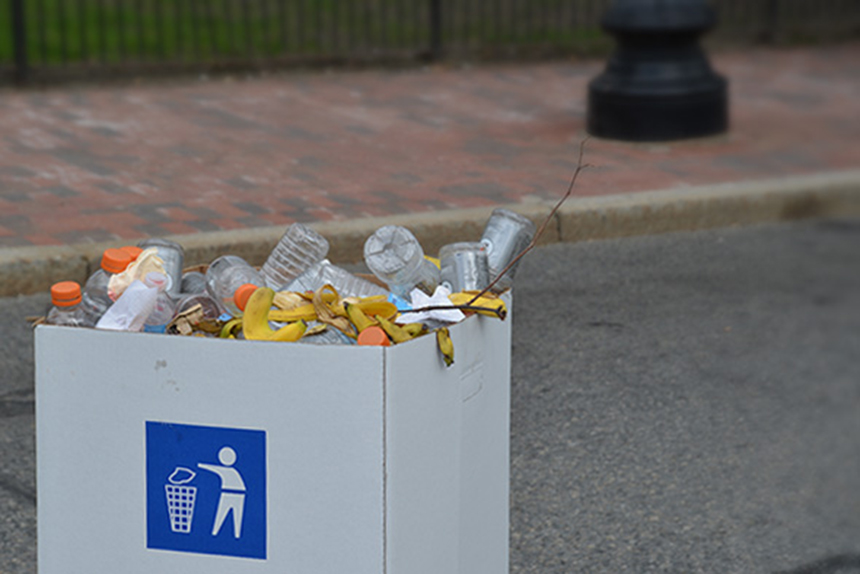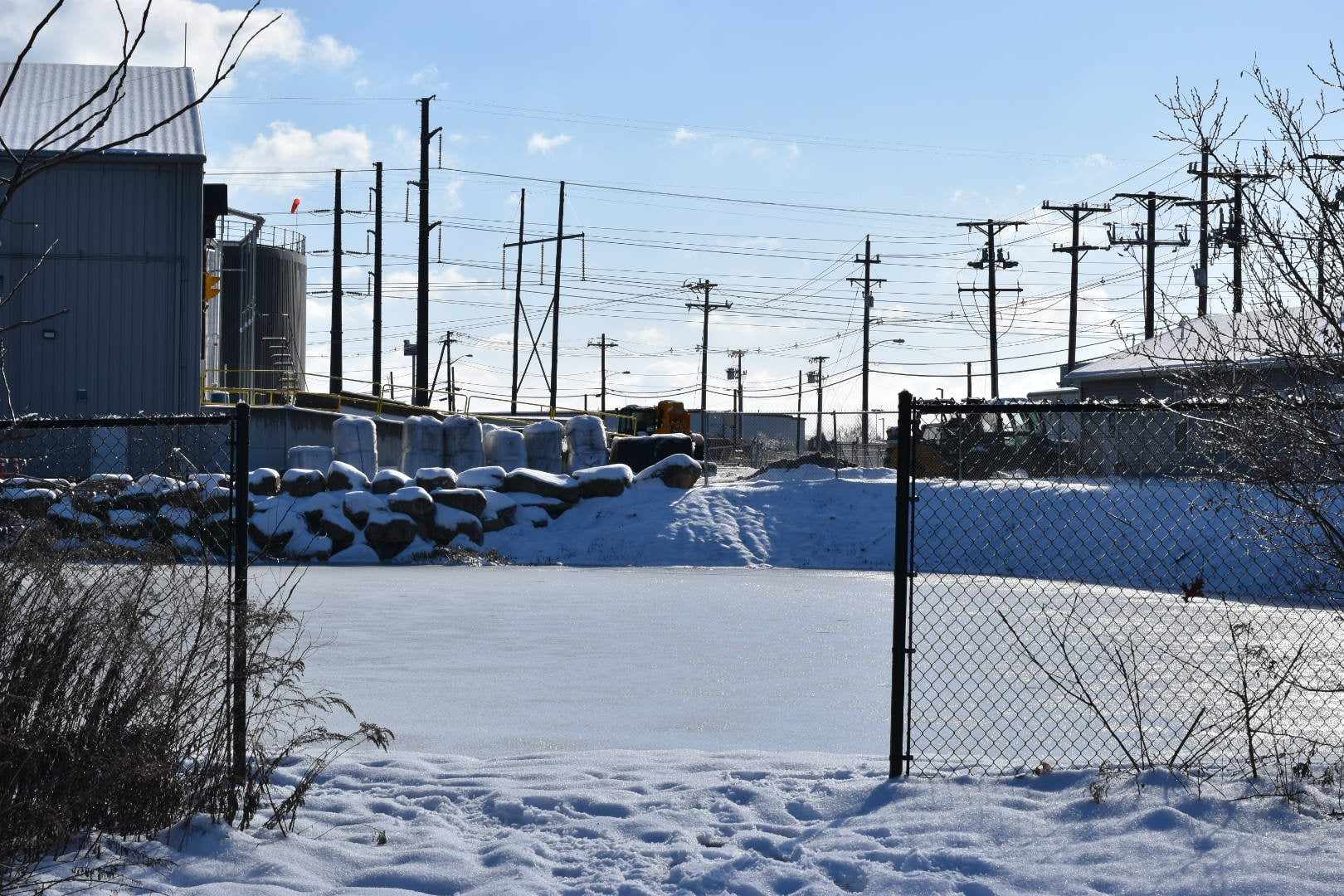New England Neighbors Leave Rhode Island in Compost Dust
May 14, 2012
Composting is another reason Rhode Islanders may want to be annexed by Massachusetts or Vermont.
Starting in 2014, the Bay State will ban food waste from businesses, schools and other institutions. By 2020, the program aims to compost 45 percent of its approximately 1 million tons of annual organic waste. It’s also targeting 2020 for statewide residential food waste collection.
Currently, Rhode Island collects yard debris and Christmas trees, which it processes as the Central Landfill in Johnston and sells as compost to the public. It also offers a limited amount of compost at no cost to cities and towns.
While several business currently compost and some universities dabble in it, Rhode Island has no state-mandated food-diversion programs.
Massachusetts has about 20 private composting facilities across the state, and is offering loans to build a regional network of open and in-vessel composting systems, along with financing businesses focused on recycling and reuse.
The Vermont House and Senate have approved similar legislation that would ban food waste from regular trash by 2020. The bill is expected to be signed by the governor.
Massachusetts. The Department of Environmental Protection (DEP) would like to be the first in the nation to ban food scraps from the trash at hospitals, hotels, large restaurants, universities and big businesses by 2014. There’s no immediate goal for curbside programs. Hamilton-Wenham and Ipswich currently offer curbside food-scrap collection programs. Other communities have received state grants for pilot studies.
DEP officials say the numbers add up for businesses to divert organic waste. Hauling organic waste to a compost facility is about a third less than trucking it to a landfill or incinerator, according to the DEP. Already about 300 of the state’s 500 grocery stores have their organic waste composted, DEP officials said. Savings amount to some $20,000 to $30,000 a year per store. “(Businesses) don’t care if we ban. They are moving pretty quickly to get (organic waste) out of there already,” said Greg Cooper, DEP’s deputy director.
Steve Sylven, a spokesman for Shaw’s supermarkets, said the grocery chain has no objections to the compost initiatives. Instead, Shaw’s has embraced a 90 percent waste-reduction goal at all of its stores. “There’s a lot of benefits to zero-waste initiatives,” Sylven said. “From our standpoint it allows us to reinvest back in the business.”
The benefits, Massachusetts officials say, also include reducing greenhouse gas emissions and extending the life of landfills. Diverting food waste to anaerobic digesters also converts the food to fertilizer and energy. A farm in Rutland, Mass. currently runs the state’s only compost and waste-to-energy digester.
A subcommittee has been created to study a long-term food ban from waste. Massachusetts already has banned recyclables, wood and tires from trash.
Vermont. The Green Mountain State has a similar program, but will require statewide composting by 2020. A study commission also will help with the integration with big businesses, which starts in 2014. For residents, it will mandate statewide recycling by 2014, leaf and yard waste by 2016 and food waste by 2017.
The project was launched by Vermont’s House Natural Resources Committee and will not require an increase in state spending. Nor is it relying on federal funds, according to Cathy Jamieson, the state’s solid waste program manager. The cost, she said, will be spread across municipalities, waste haulers and those looking to grow a business. “We are anticipating that this will prompt more investment to build infrastructure,” Jamieson said.
To boosts the state’s stagnant waste diversion rate, the initiative will focus not just on composting but also on other uses for food, such as food recovery.
Ultimately, both states are taking action through a deliberate, yet gradual approach.
Jamieson said Vermont’s project was launched out of a desire to increase the state’s flat 33 percent recycling rate — Rhode Island is at about 24 percent.
“In order to have something change you need to do something different,” Jamieson said.
Categories
Join the Discussion
View CommentsYour support keeps our reporters on the environmental beat.
Reader support is at the core of our nonprofit news model. Together, we can keep the environment in the headlines.
We use cookies to improve your experience and deliver personalized content. View Cookie Settings



